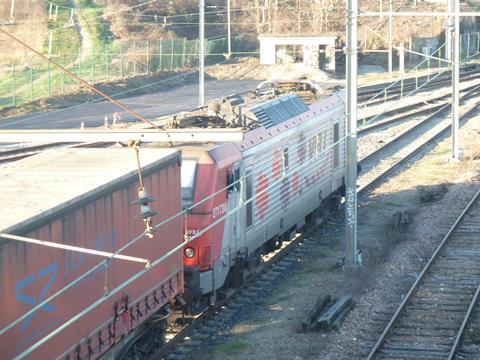
FRANCE: Rail regulator Autorité de Régulation des Transports published its formal decision on September 6 in a dispute over network access between SNCF Réseau and freight operators Captrain France, T3M, Europorte France and Régiorail.
The ruling follows a series of hearings earlier in the year relating to the allocation of train paths. The four companies said that problems had persisted ‘for many years’, identifying specific issues such as the time allocated for maintenance of the network and the level of compensation owed to operators by SNCF Réseau when problems arose as a result.
The operators approached ART on February 22 2021 requesting a regulatory review ‘with the support of other freight operators’, according to statements made during a public hearing hosted by the regulator on July 10 2022. ART was asked to rule on the difficulties relating to train paths and, more broadly, on the overall conditions for access to the network by freight operators. ART was also asked to assess how requests from operators for SNCF Réseau to modify its Network Management Statement should be handled.
Regulator demands changes
The regulator reached a final decision on July 22, but its findings were not made public until September 6. The regulator has accepted about two-thirds of the claims made by the freight companies, which will see several major changes made over the coming years to the capacity allocation process described in the NMS.
Among the most significant concerns possessions for maintenance. If planned work is cancelled for any reason and the capacity is not returned for paths and running of trains, which happens frequently according to the claimants, SNCF Réseau will be penalised. The penalty mechanism must be approved by the regulator, and is due to come into operation from 2024.
Changes are also to be made to the long-term planning of engineering works. The operators were concerned that so-called ‘RP0’ meetings, which are intended to enable all affected parties to agree how possessions are to be managed and typically take place around two years before the possession itself, often occur simultaneously. This gives operators minimal influence over most blockades, simply because they cannot attend all the meetings. ART has asked the infrastructure manager to review its planning process and consult on revisions ahead of the December 2023 timetable change.
From 2025, SNCF Réseau will have to show that measures have been implemented to increase the transparency of the path allocation process. The infrastructure manager will be expected to respond formally to requests for short-term and very short-term paths, as well as amendments to existing slots, within the timeframes set out in the NMS. If this does not happen, SNCF Réseau will again be subject to penalties.
Also from 2025, the so-called ‘Technical Schedule Committees’ created by SNCF Réseau to exchange information with operators on train path issues will see their activities codified in the NMS.
Several modifications to the rules for awarding compensation to freight companies in the event of network access problems are also to be put in place. These should loosen some of the restrictions on payments currently in force, which the claimants said do not reflect the flexibility inherent in the running of freight trains.
ART has also indicated that it expects SNCF Réseau to carry out a holistic review of the preparatory phases of the path allocation process. This should be undertaken alongside the national timetabling redesign programme now underway, with the aim of delivering an increase in network availability and enabling the government’s aspirations to grow rail freight’s market share to be met.

















